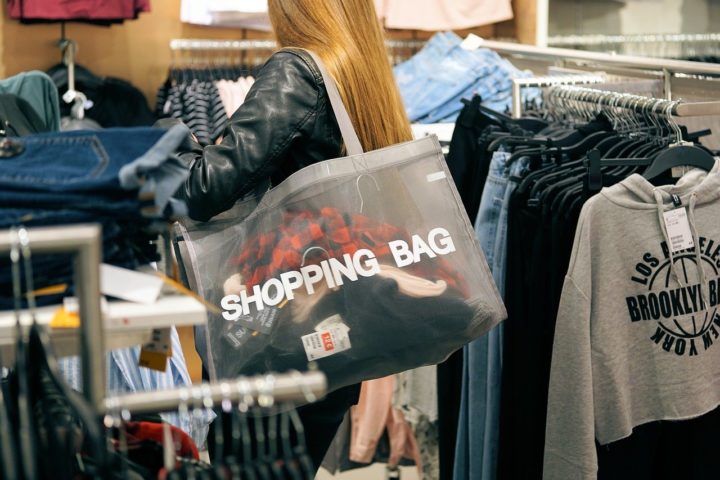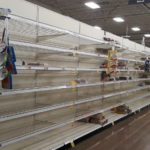
How much shopping are you doing in physical stores these days? Many of us have shifted a lot of our shopping online, if we’re shopping much at all. And while some shoppers say a coronavirus vaccine, more mask mandates or better social distancing could entice them back into stores, there’s one thing that could really work – coupons.
That’s the main takeaway from a survey conducted by the mobile marketing company CodeBroker. While more than half of respondents said they are shopping less often overall, and three-quarters say they’re spending less, coupons could be just what it takes to break these new habits.
“Coupons are as popular as they’ve ever been, and coupon offers are the key for retailers to retain customers and defend against Amazon during the pandemic,” the report declares.
Since the coronavirus pandemic started, nearly two-thirds of survey respondents say they’ve been shopping more online with Amazon, and less at their favorite stores. But three-quarters of respondents said they would shop more at their favorite stores if they received mobile or digital coupons. “If the coupon can beat Amazon’s pricing, then yes,” one survey respondent is quoted as saying.
Much has been said about the rise in online shopping during the pandemic. Some retail analysts have gone so far as to suggest that ordering frequently-purchased items like groceries, household supplies and personal care products online for delivery or pickup will become the norm, negating the need for so many physical stores.
But how much of the shift online is permanent, and how much is a temporary response to current conditions? Our changing shopping behavior is based on a confluence of events – not only health concerns, but financial concerns. “The COVID-19 pandemic has had an overwhelming impact on consumers’ lives,” the CodeBroker report notes. “Shopper behavior continues to be dictated by each consumer’s unique situation, such as income security, health concerns, and new priorities.”
Many grocery and general merchandise stores have been scrambling to ramp up their once-less-than-robust online ordering platforms to meet surging demand. But Amazon, with already well-established systems in place, has been one of the biggest beneficiaries of changing shopper behaviors. “I moved almost all my dry goods purchases to Amazon,” one survey respondent told CodeBroker. Many respondents “still do not feel safe shopping at physical stores unless it is for an item that they absolutely need,” the report found.
Financial concerns also play a part in changing shopper behaviors. “A large number of respondents also indicated that they are limiting their retail spending for financial reasons due to the uncertain economy,” the report noted. About 75% of respondents said they’re spending less overall, with 27% saying they’re spending significantly less. And nearly two-thirds expect their reduced spending levels will continue.
Few shoppers are in a position to get absolutely everything they need online, though. Sometimes, you just have to visit a physical store. But many survey respondents are still uneasy about it. One respondent shops in person “only as absolutely necessary for something I need immediately.” Another insisted that “I can’t afford to risk my life for shopping in person. I have already lost a friend so this is very real.” A third respondent is still wary about shopping in stores: “I will go back to physical stores when I feel it is safe. Too many people refuse to wear masks and social distance.”
But give ’em a coupon, and suddenly it seems some of those attitudes start changing. “High-value coupons will get consumers back into stores,” CodeBroker declares. That doesn’t necessarily mean that shoppers will choose savings over safety, but it can tip the scales when they’re forced to weigh financial concerns against health concerns. “It was interesting to see what might prompt consumers to overcome their fear and make more shopping trips,” CodeBroker CEO Dan Slavin said in a statement.
Further reflecting the growing preference for digital offers over printed coupons, 77% of the survey respondents said they prefer mobile coupons to paper coupons. That’s a big shift, considering that just two years ago, a CodeBroker survey found that only 47% preferred paperless offers.
Either way, as we grapple with both a pandemic and a recession, coupons in any form could be key to getting our shopping habits back to something resembling normal. “As retailers grapple with ways to protect and build business during and after the pandemic, considering the role that high-value coupons delivered via mobile can play in their marketing efforts holds significant promise,” Slavin said.
And if retailers and brands heed CodeBroker’s advice, more money-saving offers during these troubled times could hold significant promise for you, too.
Image source: Pixabay/webandi











Walmart and krogers in my area have stopped taking any coupons